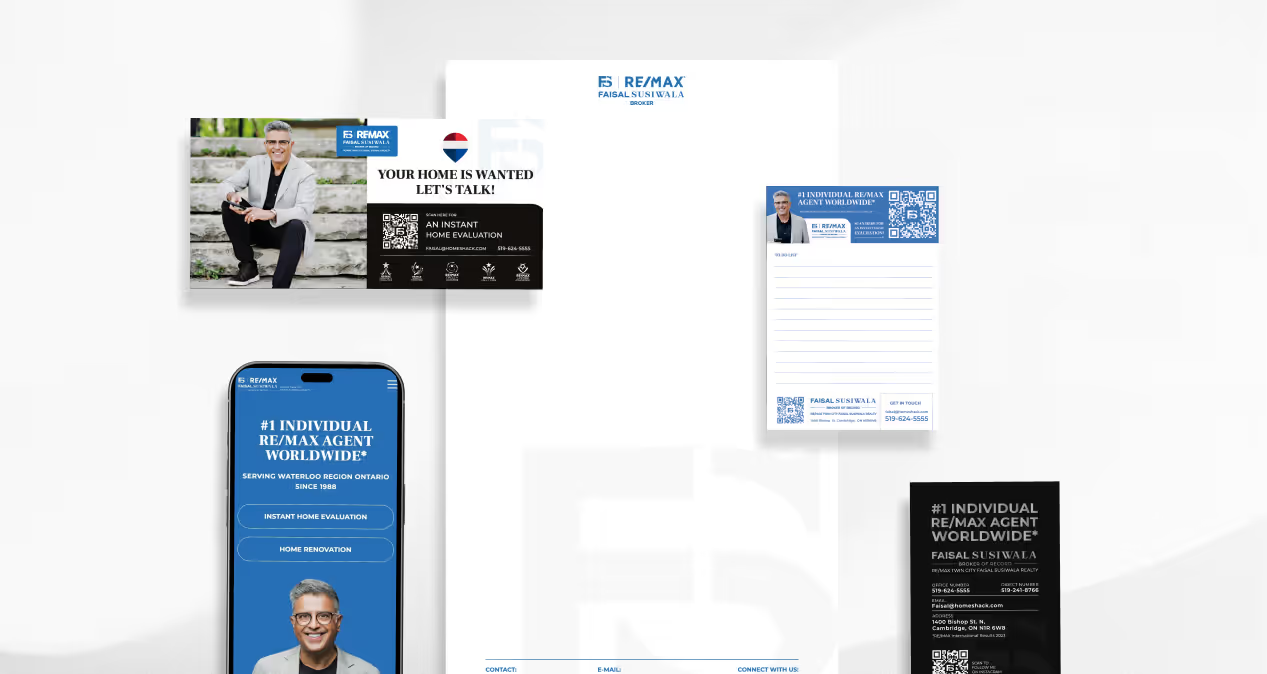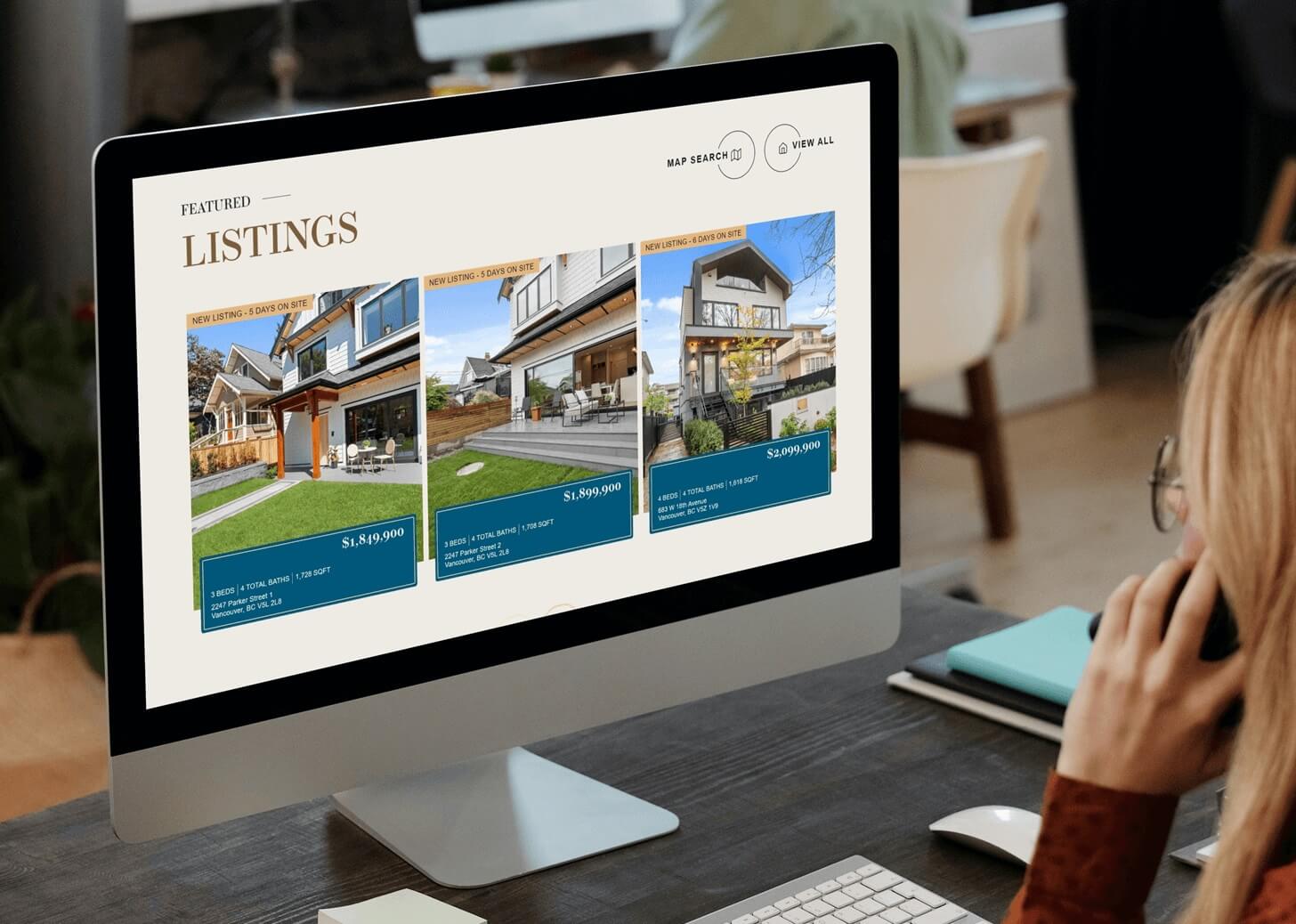
In today's fast-paced real estate industry, having a strong online presence is essential for connecting with potential clients. A well-designed and user-friendly website can make all the difference in attracting potential buyers and sellers. Whether you're a real estate agent or a property management company, your website serves as a virtual storefront. To help you create a compelling online platform, here are the 10 must-haves for a strong real estate website.
1. User-Friendly Design With A Very Simple Navigation:
The first impression matters. Ensure your website looks modern, clean, and works seamlessly on all devices – from desktops to mobile phones. A visually appealing layout with high-quality images will make a positive first impression.
Your real estate website should offer easy navigation and accessibility, ensuring potential clients quickly find the information they need. If it's hard to navigate, clients may leave in search of a simpler option. Here are the basic pages you should always include:
- Homepage: The homepage is where users land, making it their first impression. Connect all your pages, features, and tools here to offer a comprehensive experience.
- About page: Introduce yourself, your team or agency, and share your experience and background to build trust. Highlight your values, connect with potential clients by discussing hobbies, family, and your community involvement.
- Buyers & Sellers pages: These pages explain your services step by step and why clients should choose you over competitors. Include CTAs and sections linking to site tools.
- Mortgage Calculator, Insurance or any calculator you can think of: Provide tools to help potential clients understand their budget and affordability.
- Property Listings by area from the MLS: This is very important because sometimes you may have low listings and you still want to show listings to your buyers, you do not want them to go to a different page to try to find them there. You need to have an IDX integration.
- Your Listings: Create a separate page for your listings, making them the main focus for marketing seller properties. Make them easy to navigate, with clear descriptions, high-resolution photos, and essential details such as property type, price, location, and key features. If possible, include virtual tours or 360-degree photos.
- MLS Map Search: This is a MUST have, it's very good for the potential clients to explore listings visually.
- Contact page: Not everybody is comfortable calling, it's always good for potential buyers to have the option of sending a message.
- Blog: It's great for SEO, but it's also good to have in mind that you will have to post regularly and not everyone has the time.
2. Options for search & Local Property Listings
Incorporate a search feature that can allow users to filter listings based on various criteria, such as property type, location, price range, and bedroom count. Advanced search options help potential buyers find their ideal properties quickly. As an alternative which is very effective for real estate SEO, you can create separate pages for the type of listings and communities you serve, you can find here the different types you can include:
Residential listings:
- Single Family Homes in the main area you serve.
- Multifamily Homes.
- Luxury Homes.
- Separate them by community.
- Land for sale in the main area you serve.
- Condos for sale in...
- 2 bedroom house or condo in...
- 3 bedroom house or condo in...
- 4+ bedroom house or condo in...
- Senior's homes in...
- Tiny Homes in...
- New Homes in...
Commercial Listings:
- Retail in...
- Land for Sale in...
- Office in...
- Industrial Listings in...
- Investment listings in...
Or if it's the case add a separate page for new construction listings.
3. IDX Integration:
For real estate agents, consider integrating an Internet Data Exchange (IDX) system. IDX allows you to display properties from your local Multiple Listing Service (MLS) on your website, giving users access to a wide range of listings.
4. Market Reports and Statistics:
Provide up-to-date market reports, statistics, and trends for the areas you cover. This information helps both buyers and sellers make informed decisions.
5. Branding:
It will sound like we always repeat this, but yes, branding for real estate agents is essential because it helps to set your website apart from its competitors and creates a lasting impression in visitors’ minds. A well-defined brand identity not only conveys professionalism but also fosters trust and recognition among potential clients. It's the visual and emotional connection that makes your real estate business memorable and distinguishes it in a crowded market. By integrating your branding elements cohesively into your website design, you ensure a consistent and impactful representation of your business.
6. Local Partnerships:
Highlight your partnerships with local service providers, such as mortgage brokers, inspectors, and contractors. This demonstrates your commitment to helping clients throughout the entire buying or selling process.
7. Privacy Policy and Legal Information:
Ensure your website complies with all legal requirements, including GDPR or other data protection regulations. Display your privacy policy, terms of use, and any necessary disclaimers prominently.
Remember that a strong real estate website is an ongoing project. Regularly update content, listings, and features to stay current and competitive in the ever-evolving real estate market. By continuously improving your online presence, you can attract and retain clients and establish yourself as a trusted expert in your field. Contact us for a free consultation.



.jpg)


.jpg)

